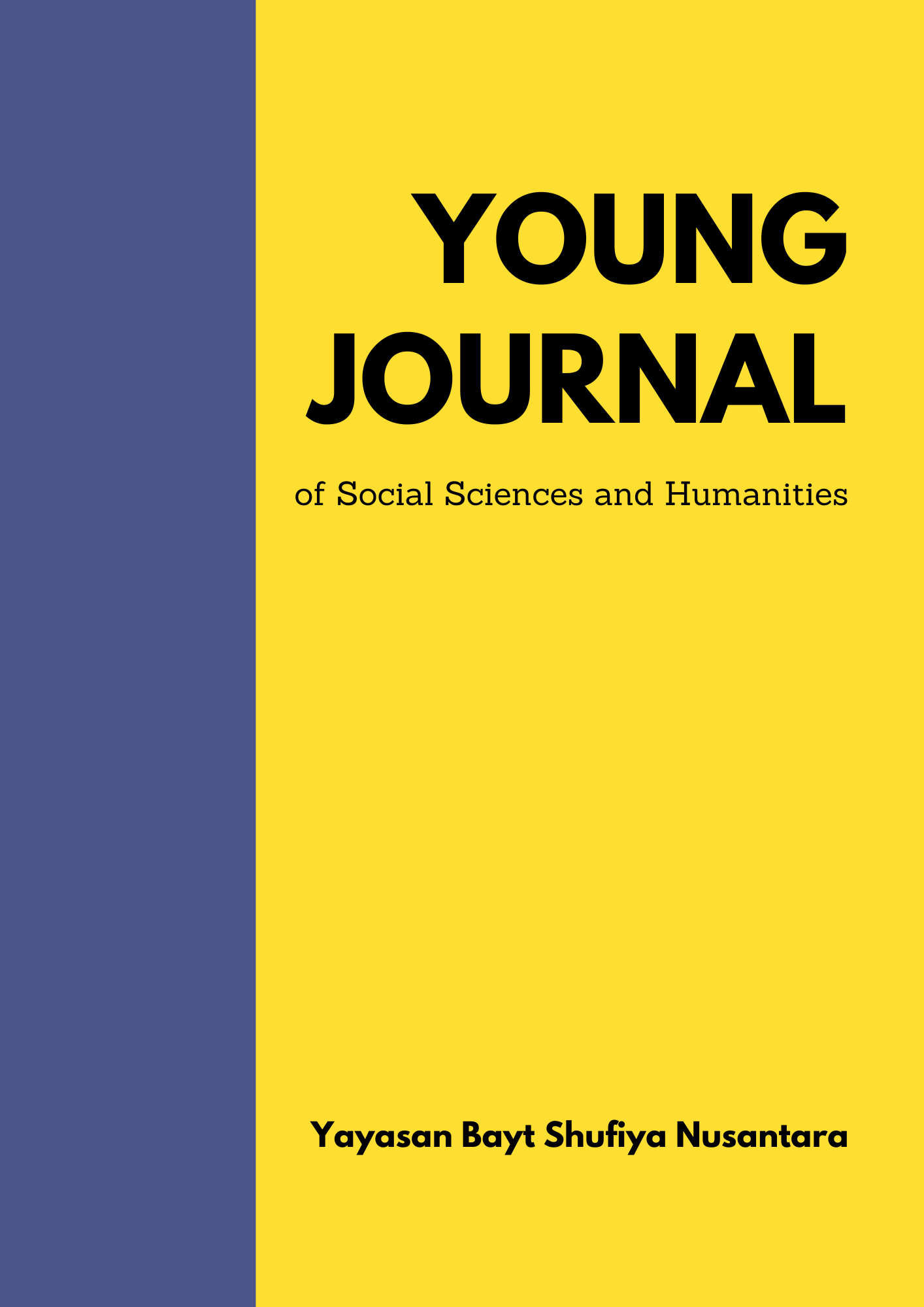Ecological Crisis: Seyyed Hossein Nasr’s Thought on Theophany
Keywords:
Theophany, Seyyed Hossein Nasr, Ecology, Islamic PhilosophyAbstract
The current global ecological crisis reflects not only material environmental degradation but also a profound spiritual crisis of modern humanity. This article aims to analyze the concept of theophany in the thought of Seyyed Hossein Nasr as a metaphysical foundation for establishing an ecological ethic rooted in Islamic spirituality. The study employs a philosophical-interpretative approach with a qualitative hermeneutic method, reviewing primary and secondary literature, including Nasr’s major works. Thematic and hermeneutic analyses reveal the ontological, epistemological, ethical, and socio-theological dimensions of theophanic perspectives on nature. Findings indicate that, for Nasr, all reality manifests God (theophany), making nature a reflection of the Divine presence that must be safeguarded with moral and spiritual responsibility. Modern ecological crises arise from the loss of theophanic awareness, leading to the exploitation of nature without recognition of its sacred dimension. Restoring human consciousness to a sacred cosmic order positions theophany as the foundation of ecological ethics that integrates faith, knowledge, and daily practices. This study underscores that addressing environmental crises requires not only technological or policy interventions but a spiritual revolution that affirms humanity’s cosmic relationship with God and creation. The article contributes to the development of contemporary Islamic ecological philosophy and offers a conceptual framework for environmentally responsible practices grounded in transcendent values.
References
Artmann, M. (2023). Human-nature resonance in times of social-ecological crisis – a relational account for sustainability transformation. Ecosystems and People, 19(1). https://doi.org/10.1080/26395916.2023.2168760
Bostani, A. (2025). Henry Corbin and Political Islam: “Iranian Islam” in the Aftermath of the 1979 Revolution. In H. Fakhoury (Ed.), New Perspectives on Henry Corbin. Palgrave Studies in New Religions and Alternative Spiritualities (pp. 291–317). Palgrave Macmillan. https://doi.org/10.1007/978-3-031-91627-4_11
Faiz, F. (2013). Eksistensialisme Mulla Sadra. TEOSOFI: Jurnal Tasawuf Dan Pemikiran Islam, 3(2), 436–461.
Faruqi, I. R. A. Al, & Nasr, S. H. (1965). Three Muslim Sages Seyyed Hossein Nasr. Philosophy East and West, 15(3/4), 285. https://doi.org/10.2307/1397066
Hasanah, H. (2017). HERMENEUTIK ONTOLOGIS-DIALEKTIS (Sebuah Anatomi Teori Pemahaman dan Interpretasi Perspektif Hans-George Gadamer dan Implikasinya dalam Dakwah). At-Taqaddum, 9(1), 1. https://doi.org/10.21580/at.v9i1.1785
Irawan, B. (2017). ENVIRONMENTAL PROTECTION FROM THE PERSPECTIVES OF INDONESIAN, SUFI AND UNITED KINGDOM MUSLIM ENVIRONMENTALISTS. Heritage of Nusantara: International Journal of Religious Literature and Heritage, 5(2), 230–261. https://doi.org/10.31291/hn.v5i2.151
Leigh, E. G. (1998). Seyyed Hossein Nasr, Religion and the Order of Nature. International Journal for Philosophy of Religion, 44(2), 124–126. https://doi.org/10.1023/A:1017193012060
M. Harris, J. (1991). Global institutions and ecological crisis. World Development, 19(1), 111–122. https://doi.org/10.1016/0305-750X(91)90042-G
Mascall, E. L. (1970). Seyyed Hossein Nasr. The Encounter of Man and Nature. The Spiritual Crisis of Modern Man. Pp. 152. (London: George Allen and Unwin, 1968.) 30s. Religious Studies, 6(1), 103–104. https://doi.org/10.1017/S0034412500000123
Merz, J. J., Barnard, P., Rees, W. E., Smith, D., Maroni, M., Rhodes, C. J., Dederer, J. H., Bajaj, N., Joy, M. K., Wiedmann, T., & Sutherland, R. (2023). World scientists’ warning: The behavioural crisis driving ecological overshoot. Science Progress, 106(3). https://doi.org/10.1177/00368504231201372
Nasr, S. H. (1968). Man and nature: The spiritual crisis of modern man. Unwin Paperbacks.
Nasr, S. H. (1996). Religion and the Order of Nature (167th ed.). Oxford University Press.
Nasr, S. H. (2002). Islam: Religion, History, and Civilization. Harper Collins.
Nasr, S. H. (2005). Essential of Frithjof Schuon. Bloomington.
Nugraha, A. R., & Naupal, N. (2019). Dialogue Between Islam and Environtmental Ethics Through the Seyyed Hossein Nasr Thought. International Review of Humanities Studies, 4(3). https://doi.org/10.7454/irhs.v0i0.204
Pihkala, P. (2022). The Process of Eco-Anxiety and Ecological Grief: A Narrative Review and a New Proposal. Sustainability, 14(24), 16628. https://doi.org/10.3390/su142416628
Safdar, S. S., & Shams-Ur-Rehmam, G. (2021). The Roots of the Ecological Crisis in the Theological and Philosophical Landscape of Modern Civilization. Islamic Studies, 60(3), 287–308.
Saniotis, A. (2012). Muslims and ecology: fostering Islamic environmental ethics. Contemporary Islam, 6(2), 155–171. https://doi.org/10.1007/s11562-011-0173-8
Sayem, M. A. (2019a). Seyyed Hossein Nasr’s Works on Environmental Issues. Islamic Studies, 58(3), 439–452.
Sayem, M. A. (2019b). The Eco-Philosophy of Seyyed Hossein Nasr. Islamic Studies, 58(2), 271–295.
Sayem, M. A. (2021a). Eco-religious teachings and environmental sustainability: An analysis of Seyyed Hossein Nasr’s “eco-spirituality” in the context of Bangladesh. Australian Journal of Islamic Studies, 6(3), 69–83. https://doi.org/10.55831/ajis.v6i3.357
Sayem, M. A. (2021b). Islam and Environmental Ethics. Islamic Studies, 60(2), 157–172.
Sayem, M. A. (2022). Religion and Ecological Crisis. Routledge. https://doi.org/10.4324/9781003287285
Syamsudin, M. (2017). KRISIS EKOLOGI GLOBAL DALAM PERSPEKTIF ISLAM. Jurnal Sosiologi Reflektif, 11(2), 83. https://doi.org/10.14421/jsr.v11i2.1353
Downloads
Published
How to Cite
Issue
Section
License
Copyright (c) 2025 Muannas, Muhammad Ali Azmi Nasution, Endang Ekowati

This work is licensed under a Creative Commons Attribution-ShareAlike 4.0 International License.














